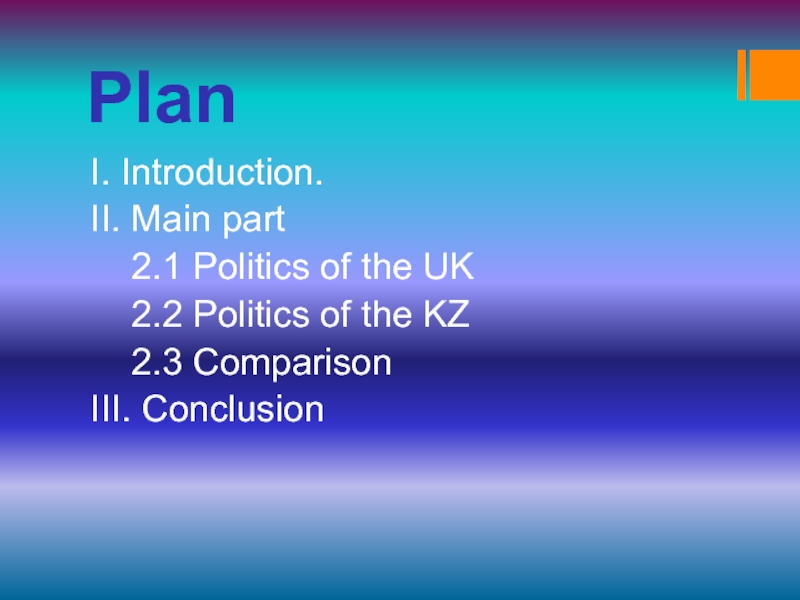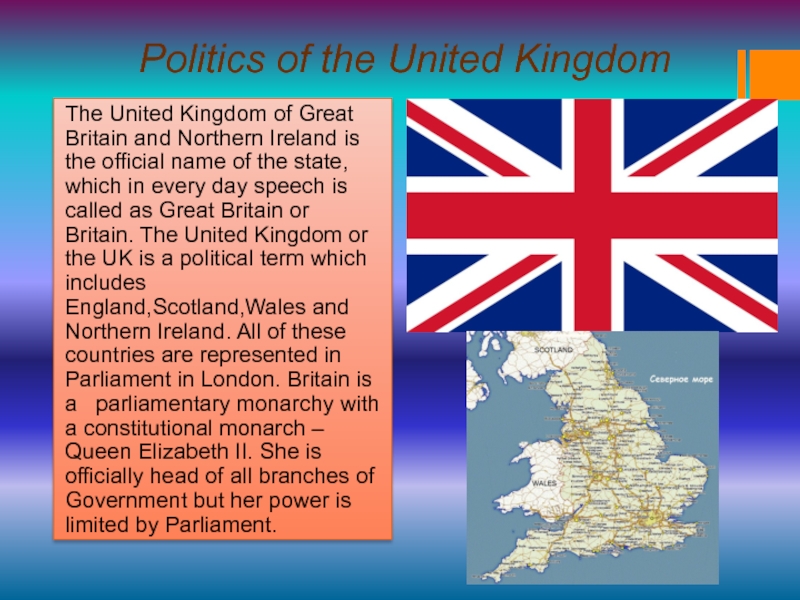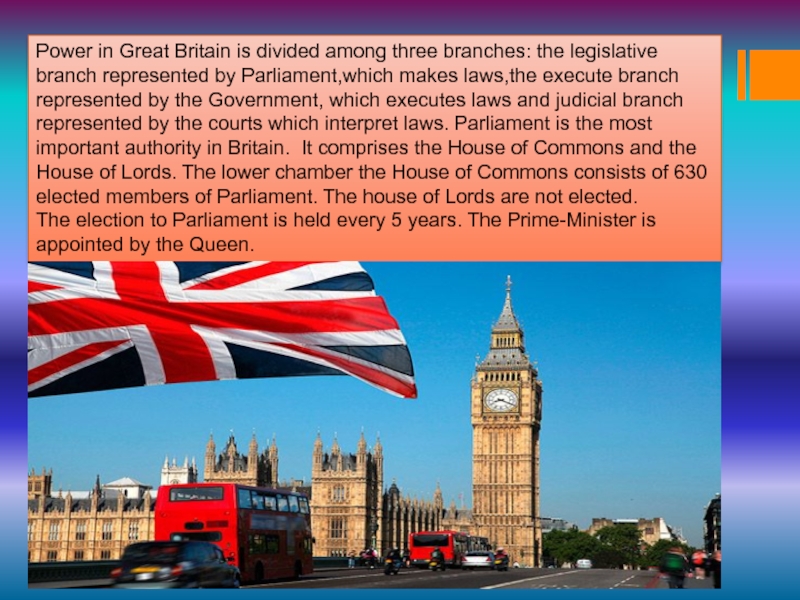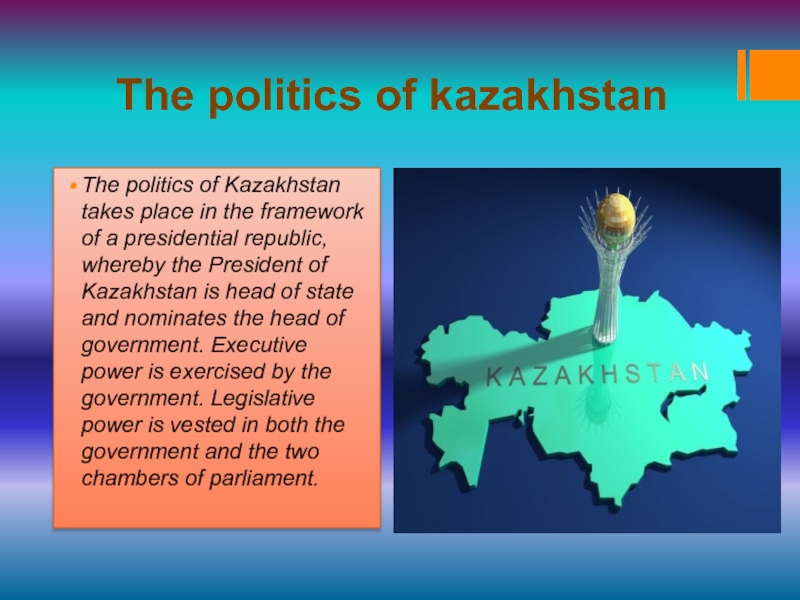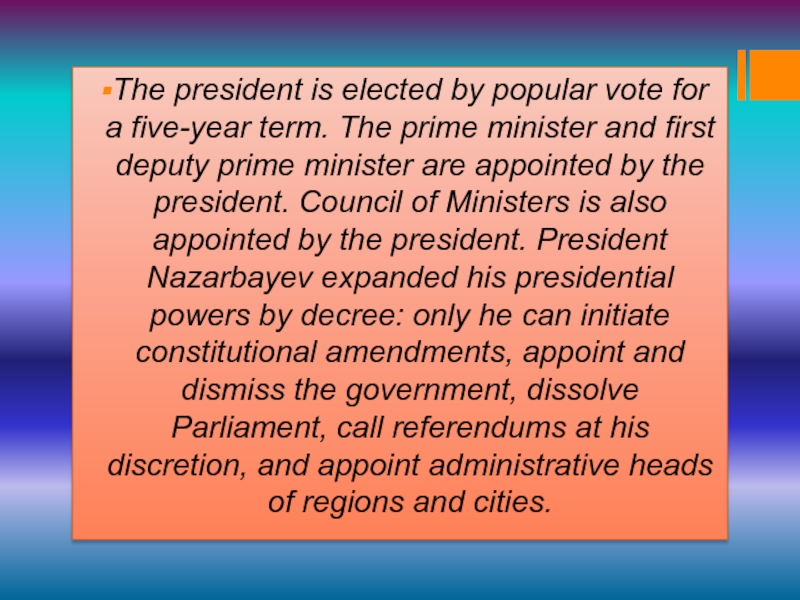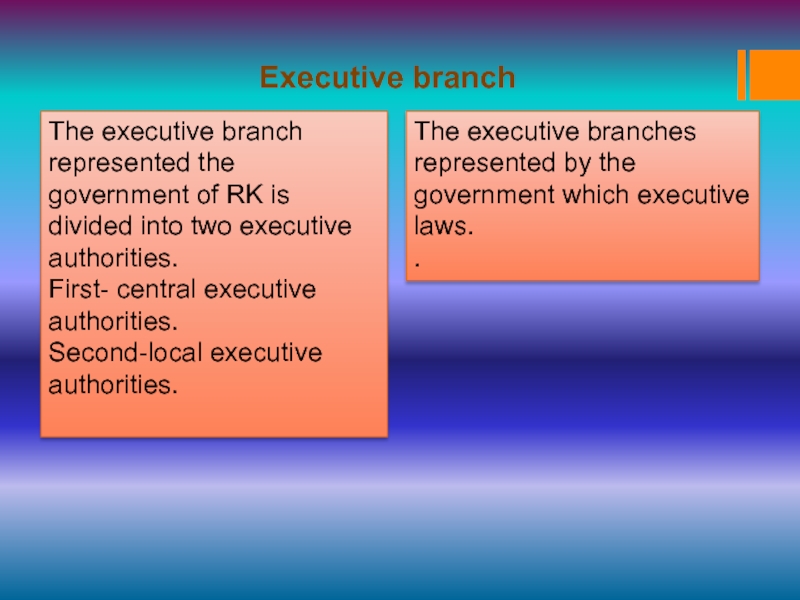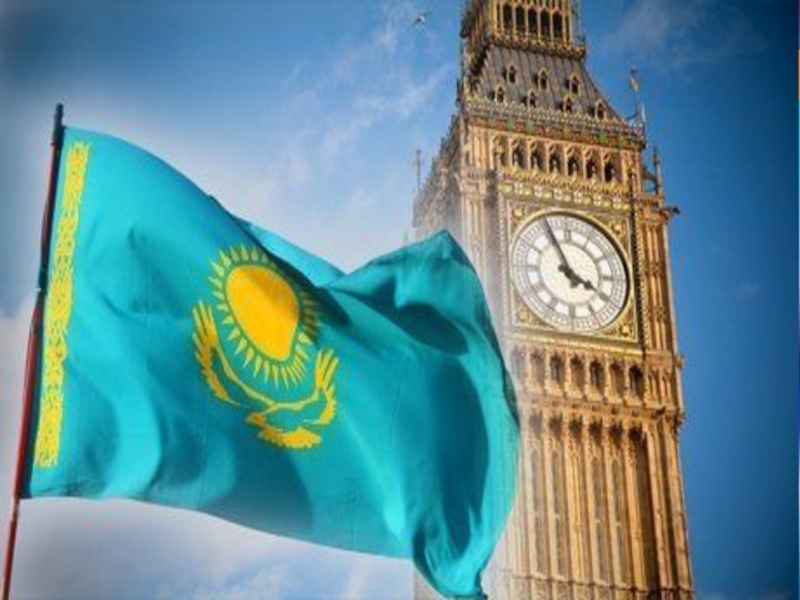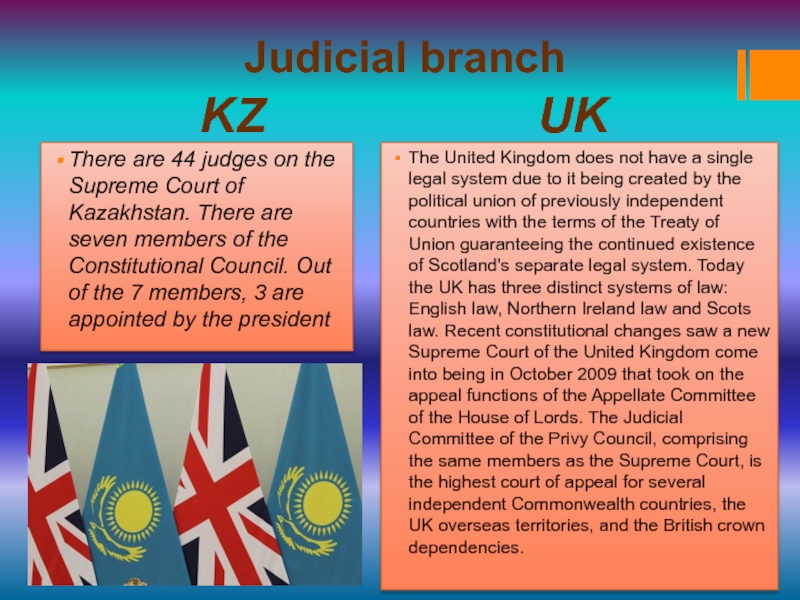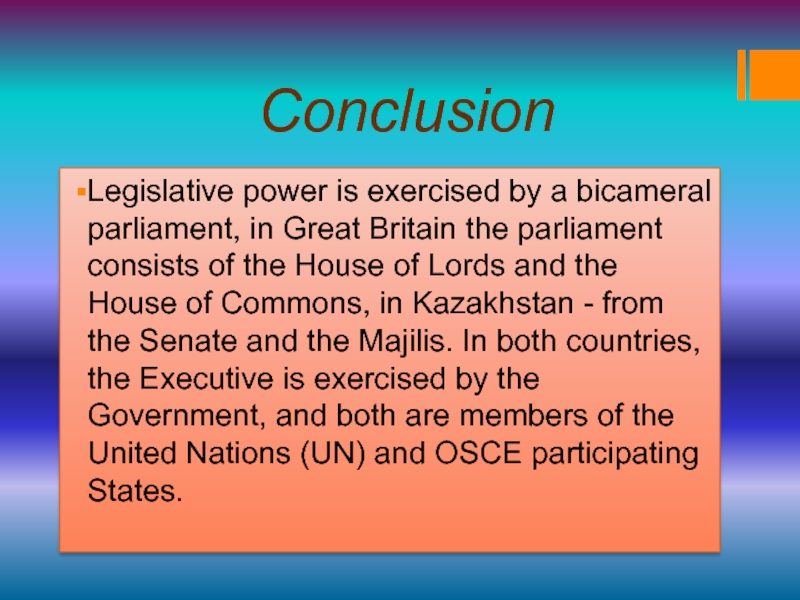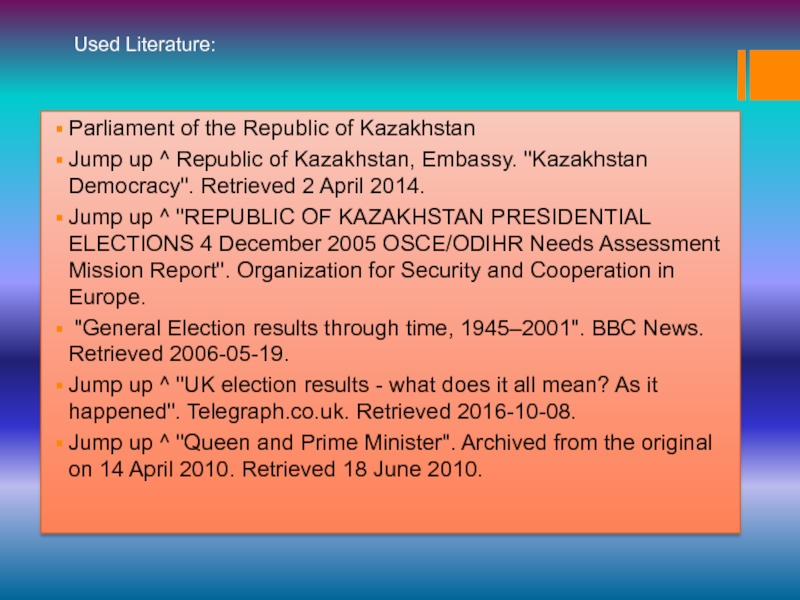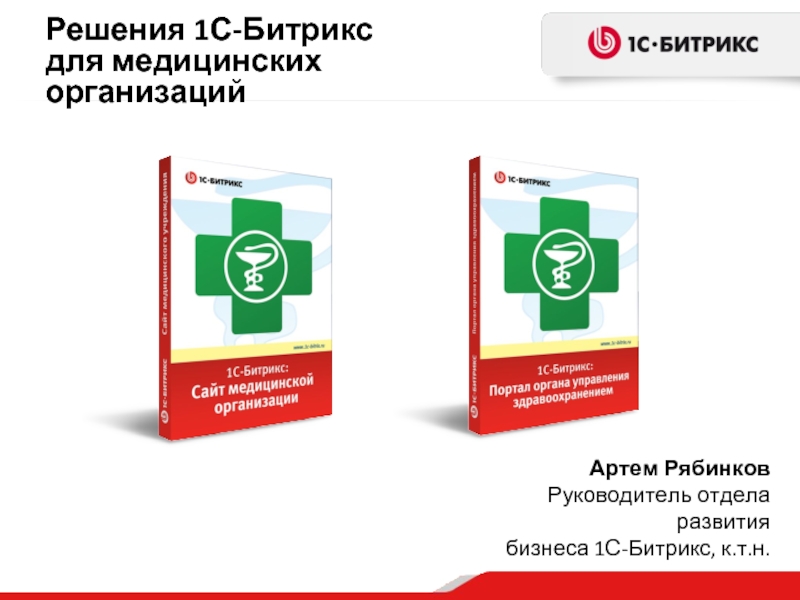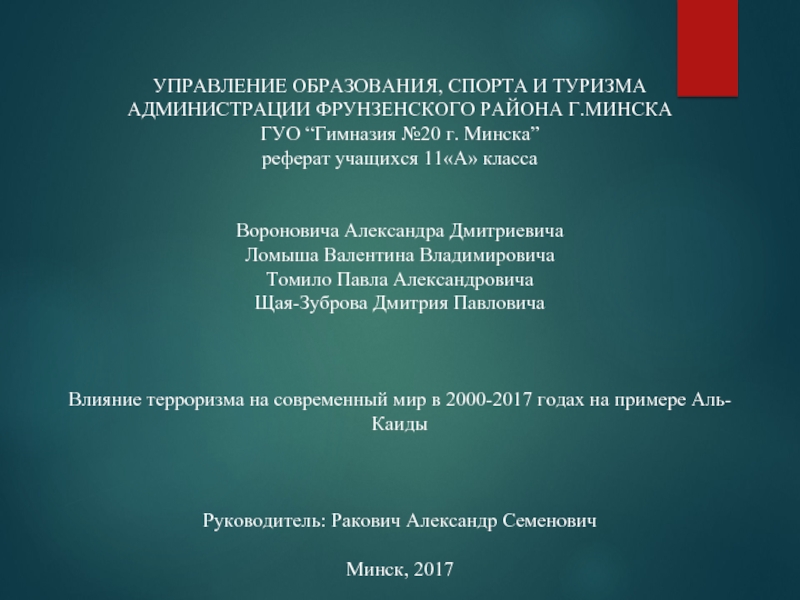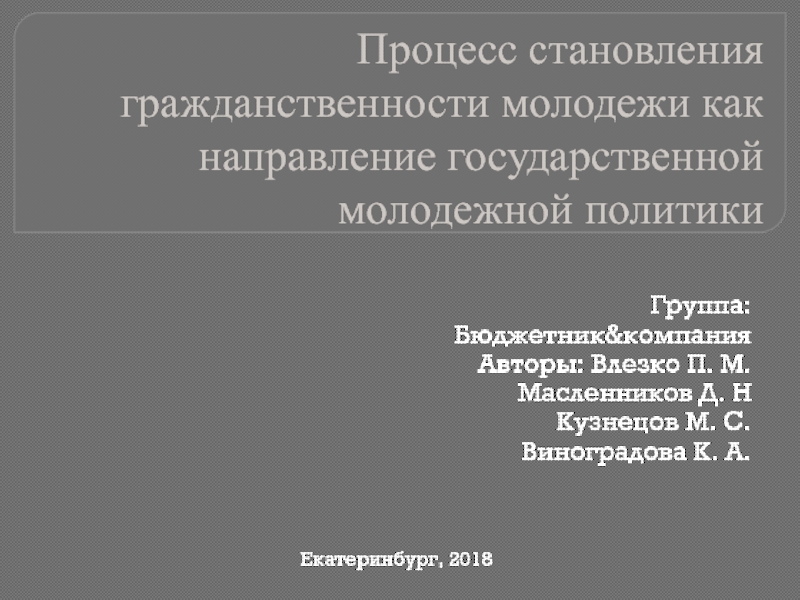- Главная
- Разное
- Дизайн
- Бизнес и предпринимательство
- Аналитика
- Образование
- Развлечения
- Красота и здоровье
- Финансы
- Государство
- Путешествия
- Спорт
- Недвижимость
- Армия
- Графика
- Культурология
- Еда и кулинария
- Лингвистика
- Английский язык
- Астрономия
- Алгебра
- Биология
- География
- Детские презентации
- Информатика
- История
- Литература
- Маркетинг
- Математика
- Медицина
- Менеджмент
- Музыка
- МХК
- Немецкий язык
- ОБЖ
- Обществознание
- Окружающий мир
- Педагогика
- Русский язык
- Технология
- Физика
- Философия
- Химия
- Шаблоны, картинки для презентаций
- Экология
- Экономика
- Юриспруденция
UK and KZ political system of their countries презентация
Содержание
- 1. UK and KZ political system of their countries
- 2. Plan I. Introduction. II. Main part
- 3. Politics of the United Kingdom The United
- 4. Power in Great Britain is divided among
- 5. The politics of kazakhstan The politics of
- 6. The president is elected by popular vote
- 7. KZ UK Legislative branch The legislature, known
- 8. Executive branch The executive branch represented the
- 10. KZ UK Judicial branch There are 44
- 11. Conclusion Legislative power is exercised
- 12. Parliament of the Republic of Kazakhstan Jump
Слайд 2Plan
I. Introduction.
II. Main part
2.1 Politics of the UK
2.3 Comparison
III. Conclusion
Слайд 3Politics of the United Kingdom
The United Kingdom of Great Britain and
Слайд 4Power in Great Britain is divided among three branches: the legislative
The election to Parliament is held every 5 years. The Prime-Minister is appointed by the Queen.
Слайд 5The politics of kazakhstan
The politics of Kazakhstan takes place in the
Слайд 6The president is elected by popular vote for a five-year term.
Слайд 7KZ
UK
Legislative branch
The legislature, known as the Parliament (Parliament), has two chambers.
The Countries of the United Kingdom are divided into parliamentary constituencies of broadly equal population by the four Boundary Commissions. Each constituency elects a Member of Parliament (MP) to the House of Commons at General Elections and, if required, at by-elections. As of 2010 there are 650 constituencies (there were 646 before that year's general election). Of the 650 MPs, all but one - Lady Sylvia Hermon - belong to a political party.
In modern times, all Prime Ministers and Leaders of the Opposition have been drawn from the Commons, not the Lords. Alec Douglas-Home resigned from his peerages days after becoming Prime Minister in 1963, and the last Prime Minister before him from the Lords left in 1902 (the Marquess of Salisbury).
Слайд 8Executive branch
The executive branch represented the government of RK is divided
First- central executive authorities.
Second-local executive authorities.
The executive branches represented by the government which executive laws.
.
Слайд 10KZ
UK
Judicial branch
There are 44 judges on the Supreme Court of Kazakhstan.
The United Kingdom does not have a single legal system due to it being created by the political union of previously independent countries with the terms of the Treaty of Union guaranteeing the continued existence of Scotland's separate legal system. Today the UK has three distinct systems of law: English law, Northern Ireland law and Scots law. Recent constitutional changes saw a new Supreme Court of the United Kingdom come into being in October 2009 that took on the appeal functions of the Appellate Committee of the House of Lords. The Judicial Committee of the Privy Council, comprising the same members as the Supreme Court, is the highest court of appeal for several independent Commonwealth countries, the UK overseas territories, and the British crown dependencies.
Слайд 11 Conclusion
Legislative power is exercised by a bicameral parliament, in
Слайд 12Parliament of the Republic of Kazakhstan
Jump up ^ Republic of Kazakhstan,
Jump up ^ "REPUBLIC OF KAZAKHSTAN PRESIDENTIAL ELECTIONS 4 December 2005 OSCE/ODIHR Needs Assessment Mission Report". Organization for Security and Cooperation in Europe.
"General Election results through time, 1945–2001". BBC News. Retrieved 2006-05-19.
Jump up ^ "UK election results - what does it all mean? As it happened". Telegraph.co.uk. Retrieved 2016-10-08.
Jump up ^ "Queen and Prime Minister". Archived from the original on 14 April 2010. Retrieved 18 June 2010.
Used Literature:

